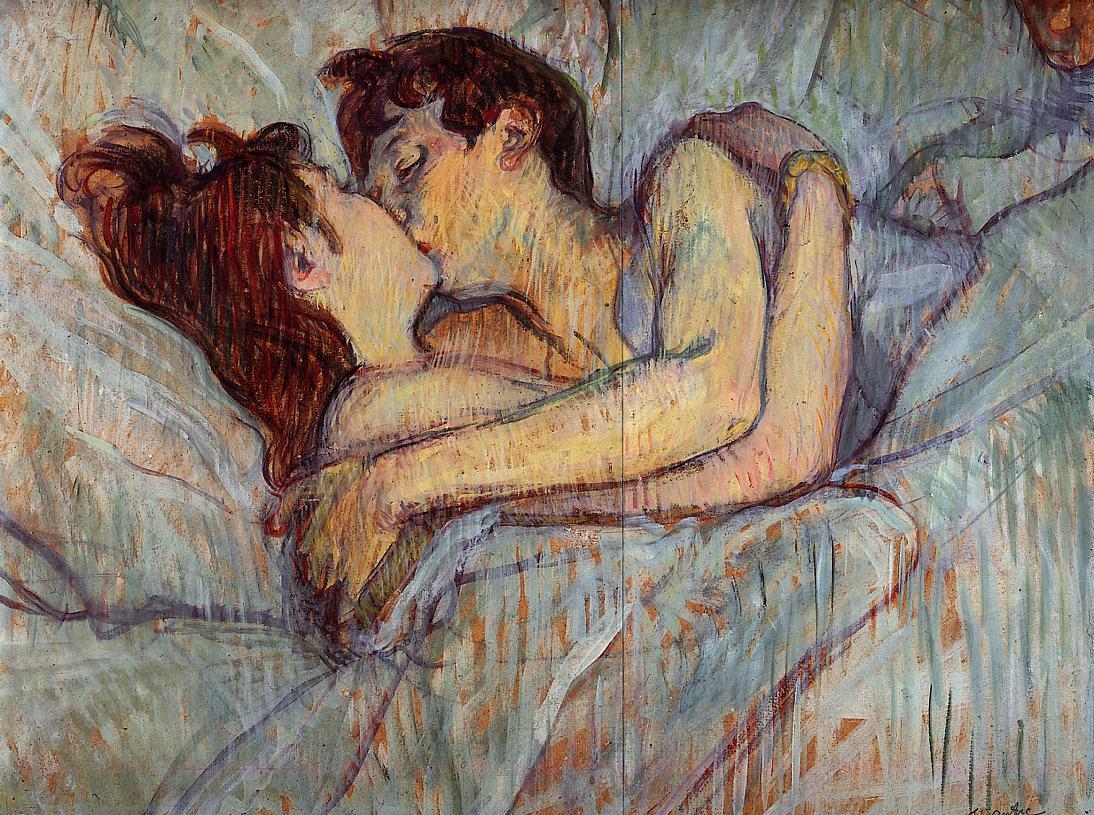
We love these songs like a high from an addiction—they are fast, always fast and jittery, and “adrenaline” is key, but the formula also requires “melancholy”—it is the nature of addictions to be sad because we know addictions doom us to fall further and further from pleasure, as pleasure, in its concentrated form, is supplied.
The tragedy of addiction doomed to finally deprive us of the very pleasure we seek is reified and strengthened in the sad and melancholy component of the addictive song—the pleasurable lift provided by the rush of the song is supplemented by an unspoken and profound irony—when Bruno Mars (and I doubt he thought of this when he wrote the song) sings “I’ve been locked out of heaven for too long” it means he will be happy when he reunites with his lady—but on another level it signifies that addictive hedonism, by its very nature, gradually locks you out of heaven and its true pleasures. You cannot be happy just by listening to these pleasurable songs all the time. You’ll get tired of them and wish for Debussy or Astrud Gilberto instead. Or silence.
The effect is purely physical, and as recording technology perfects itself, older, exciting songs, released 50, 40, 30, 20 years ago, are locked out—they no longer deliver the addictive punch that the new recordings provide. Old songs we love were written for the old studios and the old sounds— they exist in the sound technology of a former day.
A beautiful melody is a beautiful melody, but these exciting songs on our list exude physicality, and melody is moral.
And the lyric, like the melody, is moral, rather than physical.
Like melody, however, a lyric can contribute to the melancholy of the “song of melancholy adrenaline.” The lyric, “Stayin’Alive” is an example of inspirational moral content—it usually speaks of survival, sorrow, confusion, or desperate need.
Some old songs are so rhythmically catchy and many-layered, that as old recordings, they still, miraculously deliver melancholy adrenaline.
The physical rush of these songs is their chief feature—they make you feel you can rise out of yourself, that you are about to lift off the ground, that time itself has been replaced by the song. Without a decent set of stereo headphones I couldn’t compose this list.
The good songs appeal to us so that we don’t want the song to end. A truly great aesthetic experience delivers a great end.
When hits songs used to pour out of little AM transistor radios, now wasn’t that something?
But the monster, if not the actual addiction, has grown.
Here is the list:
1. What Is Love, Haddaway –You can listen to this catchy, layered, masterpiece on endless loop with Chris Kattan, Jim Carrey and Will Ferrell head pumping on YouTube.
2. Sympathy For the Devil, The Rolling Stones —working class, nerdy, English, blues students, whose grandparents lived during Brahms, experienced sex, drugs, and rock n’ roll massively, newly, before AIDS. Why 60s music was so amazing.
3. I Am The Walrus, The Beatles —A whole world began with this 1967 song.
4. Night Fever, Bee Gees —Disco as the fevered dance of death.
5. Mrs. Robinson, Simon & Garfunkel — Still a magical, poignant, guitar-jangling rush 50 years on.
6. Take On Me, a-ha — Who remembers a-ha? But this hook. The euphoric, aria-like melody is the best part. Not exactly a memorable lyric.
7. Locked Out Of Heaven, Bruno Mars —it rips off the Police but the mad, percussive, guitar-twisted mix is great.
8. Viva La Vida, Coldplay —this is a catchy, forward-driving, elaborately mixed song, with nice lyrics.
9. Smells Like Teen Spirit, Nirvana —Repairs the monotonous 80s drum sound with a melodic bass. When it comes to great songs like this never underestimate a heavy melodic bass carrying everything.
10. Smoke On The Water, Deep Purple —this song is really great, somehow.
11. Light My Fire, The Doors —where did that chord come from, that sultry death.
12. My Sweet Lord, George Harrison —the combination of rock and religious ecstasy should have been more popular, but somehow it wasn’t. True religion veers away from this kind of drug.
13. Bette Davis Eyes, Kim Carnes –it’s rare when songs this rely on vocals and lyrics.
14. Billie Jean, Michael Jackson —His two best songs are probably Billy Jean and Beat It.
15. House of the Rising Sun, Animals —Great organ riff driving bluesy melody. Mathematically perfect.
16. She’s Not There, Zombies —1964 and the addictive formula is already mixed. It’s always a pleasure when one is conscious that interesting words of the song are joining in the high.
17. Heroes, Bowie —A desperate frenzy. We can be happy, just for six minutes and 11 seconds.
18. 1979, Smashing Pumpkins —that controlled hysteria which pitches forward roller coaster like. That’s what we’re talking about.
19. How Soon Is Now? The Smiths —Invokes desperate, adolescent, weeping with the vocals already past it.
20. Dancing Queen, ABBA —has all the elements, even though it lacks an edge of desperation. Pete Townsend said their “SOS” was the best pop song ever written.
21. I Melt With You, Modern English —classic song and lyric.
22. Everybody Wants To Rule The World, Tears For Fears —It’s true.
23. Wild Side, Lou Reed —the lyrics might trigger today, but this song delivers in a subtle, understated way what so many of the flailing heavy hitters do not.
24. LA Woman, The Doors —yeah. Come on.
25. Dreams, The Cranberries —gently and moodily moving.
26. Do You Really Want To Hurt Me? Culture Club —ravishes the formula deftly.
27. Have You Ever Seen The Rain? Creedance Clearwater Revival —bass, vocals, organ, guitar.
28. Gimme Shelter, The Rolling Stones —“Oh, a storm is threat’ning”
29. Walking On Sunshine, Katrina & The Waves —this song really does walk on sunshine. That’s the amazing thing.
30. Paint It Black, The Rolling Stones —the start and end of the 80s sound in a song from 1966.
31. Sweet Dreams Are Made Of This, Eurythmics —dark and moody, with a beat, usually works.
32. Somebody To Love, Jefferson Airplanes —At their height, the greatest electric string band ever.
33. Green-Eyed Lady, Sugarloaf —Late at night, on FM radio, you hear this song. Most pop music appeals to adolescents. This song seems grown-up. It changes you forever.
34. Taking Care Of Business, Bachman Turner Overdrive —well?
35. Whole Lotta Love, Led Zeppelin —bass follows lead guitar into a deep tunnel.
36. Heart of Glass, Blondie —pretty, pretty, pretty.
37. Le Freak, Chic —the song responsible for AIDS.
38. Runaway Train, Soul Asylum —public service announcements sometimes make good songs.
39. Pine Top’s Boogie Woogie, Pine Top Smith —a guy with a piano, 1928. Don’t ever underestimate what a human can do.
40. Titanium, Sia —grief and pride in a triumphant fog of laughing gas.
41. Happy, Pharrel Williams —no I feel the beat and I’m a little less sad.
42. That’s The Way I Like It, KC and the Sunshine Band —it is the way we like it.
43. Radar Love, Golden Earring —has a good theme and groove, but never becomes bigger than the sum of its parts.
44. Let’s Dance, Bowie —the genius just likes to dance.
45. Zombie, The Cranberries —meaningful lyrics and driving fuzz bass
46. Funky Town, Lipps, Inc –cool song, with lots going on.
47. Bang A Gong, T. Rex —Marc Bolan feels it.
48. Spirit In The Sky, Norman Greenbaum —did some guy named Norman Greenbaum make the greatest rock song ever?
49. Bad Moon Rising, Creedence Clearwater Revival —great songs often tap many genres. This sounds vaguely gospel, folk, and rock n roll underneath the plain rock. It’s AM radio 2 minute length goes by fast.
50. The Last Time, The Rolling Stones —the first home run of this storied band. Riffs rule the world.
51. Long Cool Woman (In a Black Dress), The Hollies —not a remarkable song, exactly, but a remarkable recording—which is sometimes better.
52. What I’d Say, Ray Charles —this 50s piano grooves like mad.
53. Long Tall Sally, Little Richard —before musc got lecture-y, angry, and smug.
54. Counting Stars, OneRepublic —for some tunes fast is best.
55. Thunder, Imagine Dragons —it’s always about a cute little hook.
56. I Want You To Want Me, Cheap Trick —1979. It wasn’t the sucky 80s yet.
57. What I Like About You, The Romantics —the hooky bass and choruses lift it above.
58. Moves Like Jagger, Maroon 5 —dancing like Jagger is good.
59. Celebration, Kool & the Gang —this would be such a good song if they weren’t trying to celebrate.
60. 24K Magic, Bruno Mars —this soul man knows his way around harmony and hooks.
61. Sunshine Superman, Donovan —a real fine groove.
62. Going Up The Country, Canned Heat —makes you want to lean your ear down and listen to the drums
63. Be My Baby, The Ronettes —Phil Spector had something in his soul.
64. I’ll Never Find Another You, The Seekers —the acoustic guitar just needed a speaker.
65. Love Grows (Where My Rosemary Goes), Edison Lighthouse —yup. This song.
66. She’s A Lady, Tom Jones —when crossover songs were king.
67. Addicted To Love, Robert Palmer –it rocks and sways.
68. I’m A Believer, The Monkees —organ and tamborine.
69. Friday On My Mind, Easybeats —oh God yeah!
70. I Want You, Bob Dylan —when all is said and done, his best fast song.
71. Walk Like An Egyptian, The Bangles —more up tempo than we remember.
72. The Twist, Chubby Checker —satisfies all the criteria.
73. Torn, Natalie Imbruglia —crank up the folk song.
74. I Love It, Icona Pop —pretty hysterical.
75. Joey, Concrete Blonde —one sometimes wonders how many minor keys should be major.
76. Kodachrome, Paul Simon —this 60s songwriting icon can rock.
77. I Can See For Miles, The Who —great musicians who veered into program rock sometimes.
78. I Wanna Be Sedated, Ramones —purity?
79. A Horse With No Name, America —a nonchalance hides an urgency of sorts.
80. Burning Love, Elvis —70s Elvis found excitement with this one.
81. Thank you, Dido —thank you to the artist Sade.
82. I Still Haven’t Found What I’m Looking For, U2 —righteous rocking.
83. The Ballroom Blitz, Sweet —it rocks, and one cannot take it seriously.
84. We Didn’t Start The Fire, Billy Joel —perhaps the template of annoying.
85. MMMBop, Hanson —Okay.
86. You Spin Me Round (Like A Record), Dead Or Alive —spinning around is good.
87. She Drives Me Crazy, Fine Young Cannibals —the 80s sound maybe became too dependent on the heavily miked, heavily foregrounded drum set.
88. Our Lips Are Sealed, The Go-Gos —a great song from the girl group.
89. One More Time, Daft Punk —this band is good, if somewhat derivative.
90. Electric Avenue, Eddy Grant —great but who let the noodling instruments in?
91. She Bangs, Ricky Martin —this really sounds like a party.
92. I Want Your Love, Chic –nice, melancholy chorus.
93. Drops of Jupiter, Train —the symphony orchestra muscles in too much?
94. Where Is The Love, Black Eyed Peas —too much formulaic lecturing?
95. She’s A Maniac, Michael Sembello —who didn’t like Jennifer Beals?
96. Numb, Linkin Park —wall of sound sensitive.
97. Bad Romance, Lady Gaga —a bit cute.
98. We Found Love, Rhianna —this is for jumping.
99. Holiday, Madonna —girls just want to have fun.
100. Pump Up The Volume, Marrs —like driving fast.
101. Sweet Jane—Velvet Underground
102. Piano Concerto 20 D Minor —Mozart
103. Every Breath You Take —Police
104. Love Will Tear Us Apart —Joy Division
105. Waterloo Sunset —Kinks
106. Don’t Fear The Reaper —Blue Oyster Cult
107. Who’s That Lady? —The Isley Brothers





















 General Santa Ana faces off with General Winfield Scott—Diego Rivera
General Santa Ana faces off with General Winfield Scott—Diego Rivera




